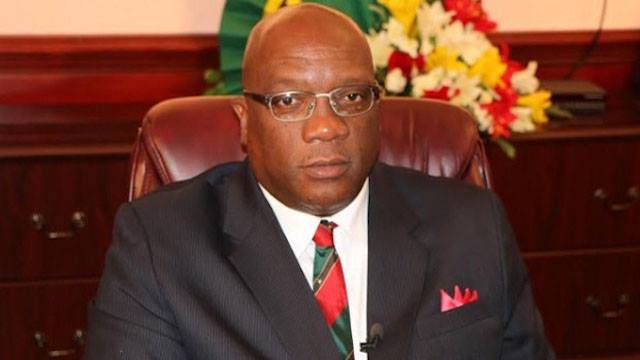Prime Minister Dr. Timothy Harris says joining the Trinidad-based Caribbean Court of Justice (CCJ) is not a priority for his coalition administration in St Kitts and Nevis.
Harris, speaking on WINN FM radio here said that his government is not treating membership of the CCJ that was established in 2001 to replace the London-based Privy Council as the region’s final court, as a priority at this time.
“In terms of the CCJ the cabinet has not made a determination with respect to that matter, it is a matter we will perhaps consider at a more proficient time. At this moment I think there is a sense that the Privy Council is favoured by the national community,” Harris said.
St. Kitts-Nevis is among Caribbean Community (CARICOM) countries that have signed on to the original Jurisdiction of the CCJ. However, only Barbados, Belize, Dominica and Guyana are signatoresi to the appellate Jurisdiction of the Court that also functions as an international tribunal interpreting the Revised Treaty of Chaguaramas that governs the regional integration movement, CARICOM.
Antigua and Barbuda and Grenada are due to hold national referendum on November 6 to determine whether or not to replace the Privy Council.
Harris told radio listeners that the issue of replacing the Privy Council with the CCJ is among the matters “that before we attend to this we will put before the people, have an educational programme with regard to any movement away from the Privy Council and get a good grounding from the people where they want to go because there are very strong views for and against on that one.
“It is a matter someday we will have to confront, we don’t need to confront it today, so it is not a priority consideration at this time for the Team Unity administration,” he added.
Former CCJ president, Sir Dennis Byron, a citizen of the twin island Federation, said recently that the CCJ is not a party issue and that a referendum often requires a two-thirds majority for change.
“What has been happening in our country is because of the cost, and the complexities and the difficulty of going to the Privy Council our people have not been having a final appeal. They just have a case and a court of appeal and most people have to stop there even if they are not satisfied.
“The CCJ has put a stop to that because, in the countries that have adopted our jurisdiction, people are coming to us. It’s easier, it’s cheaper, it’s on the spot and if you look at some of the decisions that we have made it’s impacted on the day to day life of the communities in ways in which the Privy Council never do,’ Sir Dennis had said.




